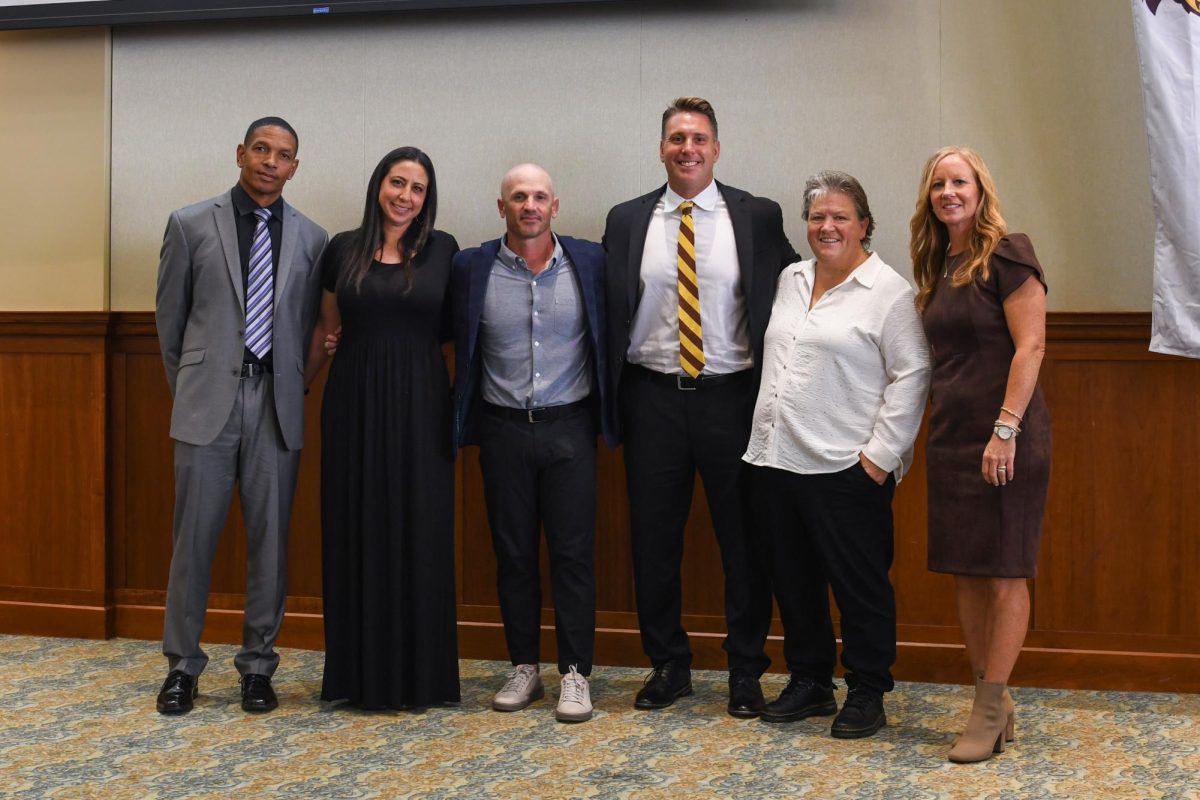Last week Rowan’s Office of the President took an unprecedented step in transparency. After lead was discovered in at least some of the water on campus, emails were sent to every student describing the issue and how it was being handled. A meeting was called the next night to explain the situation even further and to address student concerns. And earlier this week, detailed results from those earlier lead tests were sent out to students again via email.
The problem is that much of this effort seems to have been for naught.
“Aside from Rowan officials and student reporters, the meeting was attended by less than five students,” The Whit’s report said. “’We were hoping there would be more people (at this meeting), but this is a good thing, the message is getting out,’ [University Spokesman Joe] Cardona said.”
But was it?
Nobody came to the meeting. Half the room was filled with experienced faculty prepared to answer detailed and intricate questions about lead poisoning, 20th century piping, and 1984, when different regulations came into play regarding the materials pipes are made of.
There were only a handful of questions, most of which were answered by the same three people.
What has caught the eye of vigilant observers though, is that the students walking around on campus are anything but laconic. On Facebook, comment chains go on for pages where students complain about the water, the response, and the perceived egregiousness that something like lead in the water could even occur at an up-and-coming research university in southern New Jersey.
On Twitter and Yik-Yak the conversation is much the same. A lot of complaining and valid opinions thrown in the void of the internet with little more than the mind-numbing pleasure of a “thumbs up” or a “like” as feedback.
So while the meeting was held on the first day of classes when many students had yet to move back to campus, the university opened phones and emails in preparation for the outcry, one that, as far as the university must be concerned, never truly came.
Similarly, The Whit opened its arms by calling for Letters to the Editor, or messages through social media where students, faculty or alumni could voice their concerns or opinions.
Again, silence.
While it is true that the university could do more to improve the way it is communicating its message, (I.e. training resident assistants to answer questions about the topic or by going through the residence halls and speaking with residents directly) it is without question that the student body has blown the chance to have its voice heard, and to educate itself to the highest level possible.
During the meeting last week, Cardona said communicating with the student body is always difficult. People don’t check their email or sign up for the Rowan Alert system. But bashing the response to a serious problem on Twitter and Facebook gets us nowhere, especially when the university is literally asking for you to call and voice your concerns to them directly.
The only conclusion then is that students are both too afraid and too used to hiding behind a screen to make a simple phone call to another human being, or they simply don’t care enough about a major issue afflicting their university.
Either way, something has to change.
-The Whit Staff
For questions/comments about this piece email [email protected] or tweet us @TheWhitOnline.






































































































































































































Joe Cardona, Vice President for University Relations • Sep 8, 2016 at 9:29 pm
Dear Whit:
Thanks for raising the issue. Whether its lead in the water or limited parking or trouble registering for classes, I want to assure you that the University’s leadership wants to hear from students. Yes, we monitor social media, but rarely do those platforms lead to productive conversations.
With that said, please encourage students to voice their opinions at SGA meetings or drop in on a dean or even write to the President’s Office at [email protected]. We will listen and respond.
Thanks!